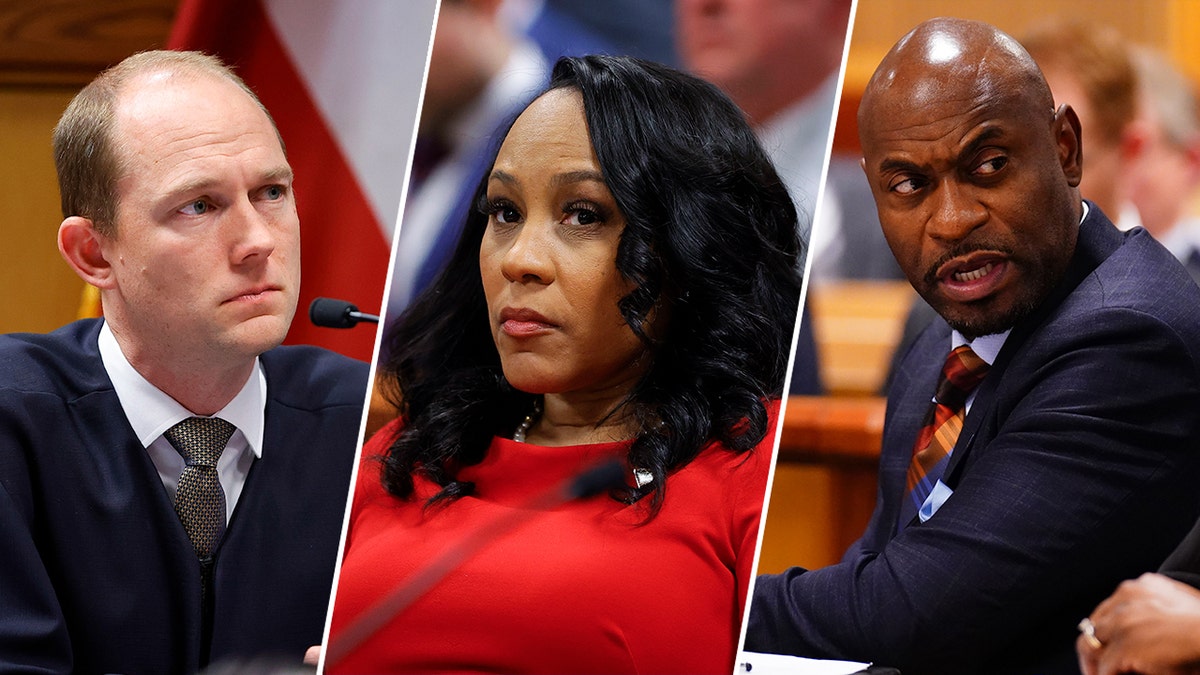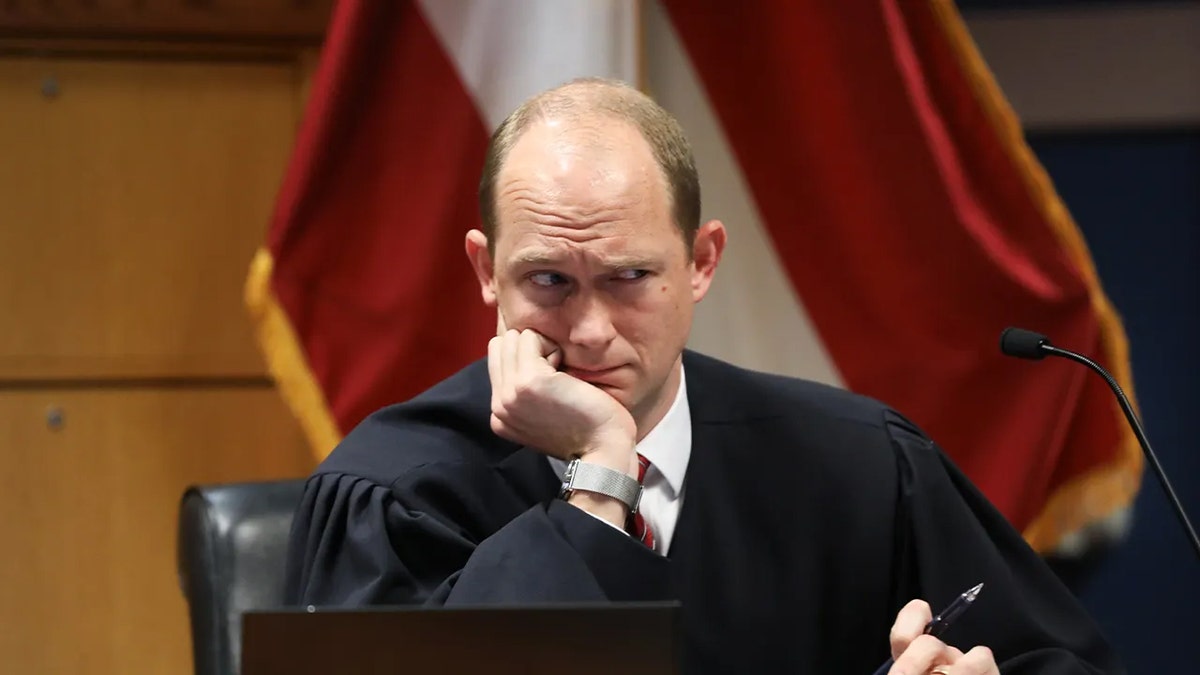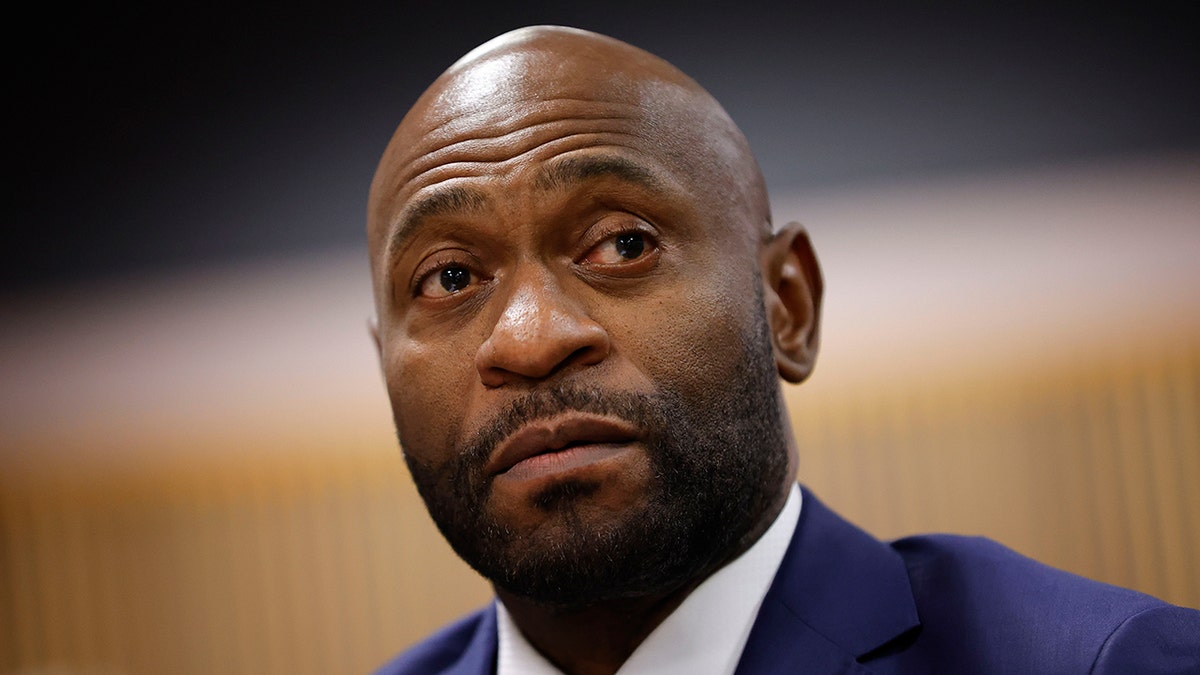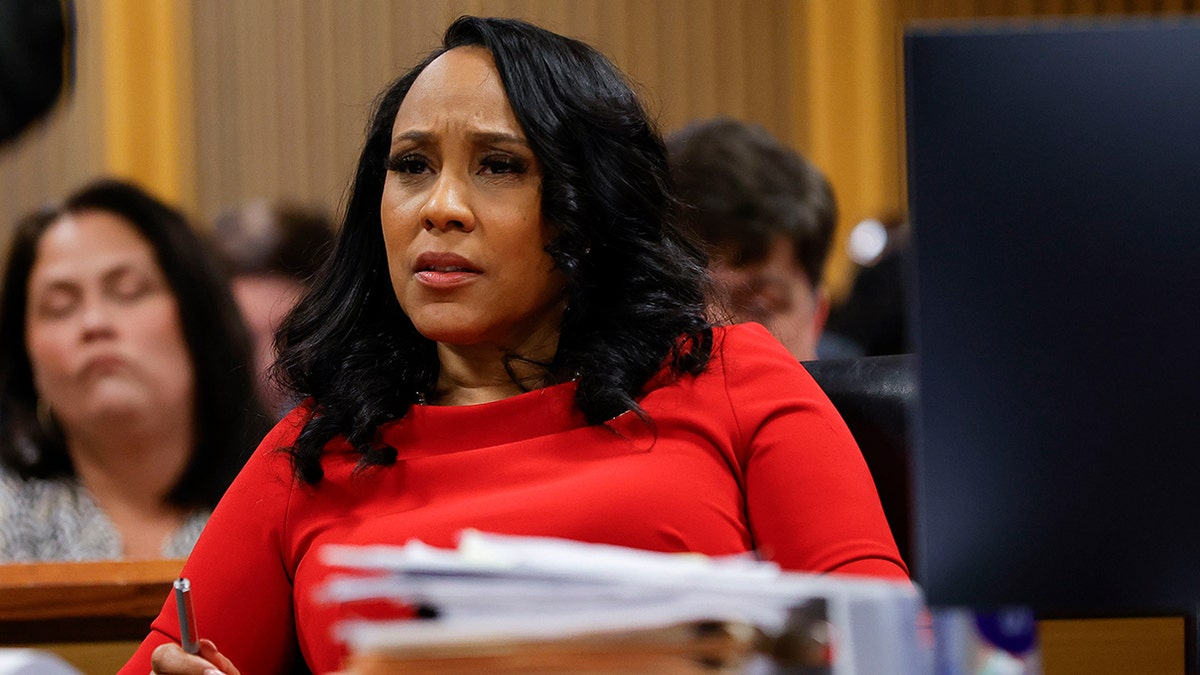Georgia judge chastised controversial District Attorney Fani Willis on Friday, ruling that she must either step aside or remove her ex-lover and special prosecutor from the case. Willis was criticized for “making poor choices” and exhibiting a “tremendous lapse in judgment.”
Judge Scott McAfee’s 23-page ruling stated that the attorneys representing former President Trump and multiple co-defendants in the massive 2020 election meddling lawsuit had not “met their burden of proving” a “actual conflict of interest in this case.”
Here is the Full Coverage :
But according to McAfee, unless special prosecutor Nathan Wade is fired or Willis resigns, the body of evidence “highlights the appearance of impropriety” that permeates the prosecution team.
Shortly after the judge’s decision, Wade tendered his resignation from the Trump lawsuit.
The following are the court order’s five main conclusions:

1. In her court testimony, Judge McAfee refers to Willis’ actions as “unprofessional.”
Defendants moved to have Willis removed from the case, but McAfee rejected their request, stating there was insufficient evidence to support the claim that Willis “acquired a personal stake in the prosecution, or that her financial arrangements had any impact on the case.”
He also stated that his conclusion “is by no means an indication that the Court condones this tremendous lapse in judgment or the unprofessional manner of the District Attorney’s testimony during the evidentiary hearing.”
“Rather, it is the undersigned’s opinion that Georgia law does not permit the finding of an actual conflict for simply making bad choices – even repeatedly – and it is the trial court’s duty to confine itself to the relevant issues and applicable law properly brought before it,” he stated.
During the two-day evidentiary hearing last month, Willis made an unexpected court appearance. She engaged in hours of verbal sparring with attorneys while testifying, to the point where the judge threatened to strike her testimony. She also drew criticism for seemingly having her clothing on backwards.
2. The judge cites the state bar, the ethics board, and the Georgia legislature as having “unanswered questions” regarding Willis’ affair.
The judge stated in his ruling, “Other forums or sources of authority such as the General Assembly, the Georgia State Ethics Commission, the State Bar of Georgia, the Fulton County Board of Commissioners, or the voters of Fulton County may offer feedback on any unanswered questions that linger.”
“But those are not the issues determinative to the Defendants’ motions alleging an actual conflict,” he continued.
Wade’s cellphone data revealed that he had made late-night visits to Willis’ condo prior to his hiring, according to testimony from attorney Ashleigh Merchant, who spearheaded the lawsuit against Willis, before the special Georgia state senate committee investigating Willis held its first hearing in January.
Earlier this year, the Georgia House of Representatives approved a bill that would resurrect the Prosecuting Attorneys’ Qualifications Commission, perhaps serving as a means of ousting Willis.
After determining that it lacked authority, a Fulton County ethics board that was set to consider accusations made against Willis earlier this month withdrew. However, the Georgia State Bar is still receiving complaints about Willis and Wade.
3. McAfee chastises Fani Willis for her public remarks, accusing her of “playing the race card” and giving a “improper” church address.
Defendants contended that Willis’s multiple remarks made in public regarding the case were biased. Willis’ “unorthodox decision to make on-the-record comments, and authorize members of her staff to do likewise, to authors intent on publishing a book about the special grand jury’s investigation during the pendency of this case,” according to McAfee, was one of the remarks that didn’t justify her disqualification.
McAfee, however, claimed that Willis’s use of racially inflammatory language during a speech at a church service—about “playing the race card”—was “legally improper.”
“The District Attorney must tread carefully when allowing this kind of public commentary. In order to avoid damaging pretrial publicity, the moment may have come for an injunction prohibiting the State from bringing up the issue in any public forum, he stated.
4. ‘Willingness’ of Nathan Wade to ‘conceal’ his relationship with Willis
Wade’s “patently unpersuasive explanation” regarding false statements he provided to the court on his divorce, according to Judge McAfee, “indicates a willingness on his part to wrongly conceal his relationship with the District Attorney.”
5. Important witness testimony that states Wade and Willis had an affair before he was hired is disregarded
McAfee declared that he was “unable to place any stock” in the testimony of Terrance Bradley, Wade’s divorce lawyer and former law partner, who was regarded as a crucial witness for the defense team’s attempt to establish that Wade had a romantic relationship with Willis before being hired.
When questioned under oath, Bradley claimed he was unable to remember specifics and dates regarding discussions he had with Wade, a former client, regarding Wade’s intimate involvement with Willis.
When pressed regarding a text message exchange, he once claimed that Willis and Wade had “absolutely” gotten together before he was employed by the DA’s office in 2021. He later stated in court, however, that he was “speculating” when he made such remarks.
Bradley’s “inconsistencies, demeanor, and generally non-responsive answers left far too brittle a foundation upon which to build any conclusions,” according to McAfee’s order from Friday.


“While prior inconsistent statements can be considered as substantive evidence under Georgia law, Bradley’s impeachment by text message did not establish the basis for which he claimed such sweeping knowledge of Wade’s personal affairs,” McAfee stated.
After meeting Wade at a conference, Robin Yeartie, a former “good friend” of Willis and employee of the DA’s office, said in court that she had “no doubt” that Willis and Wade’s connection began in 2019.
She stated in her testimony that she had seen Willis and Wade “hugging,” “kissing,” and displaying “affection” before November 2021, and she was positive that the two had been in a “romantic” connection since 2019 until the last time she spoke with Willis in 2022.
“While the testimony of Robin Yearti raised doubts about the State’s assertions, it ultimately lacked context and detail,” Judge McAfee stated in his order on Friday morning.
“[N]either side was able to conclusively establish by a preponderance of the evidence when the relationship evolved into a romantic one,” he stated.
However, the judge stated that “an odor of mendacity remains,” as well as that “reasonable questions about whether the District Attorney and her hand-selected lead SADA [special assistant district attorney] testified untruthfully about the timing of their relationship further underpin the finding of an appearance of impropriety and the need to make proportional efforts to cure it.”
Wade sent Willis a letter on Friday afternoon announcing his resignation, citing his desire to do so “in the interest of democracy.”
(This news report is from a syndicated feed. THND team members did not write or edit the content except for the headline.)
Read more :
- https://www.foxnews.com/politics/trump-georgia-case-5-key-takeaways-judges-order-giving-da-fani-willis-ultimatum
- https://thehill.com/homenews/4471260-5-revelations-explosive-fani-willis-hearing-georgia/
- https://www.theguardian.com/global/2024/mar/15/fani-willis-ruling-key-takeaways-trump-georgia
- https://forextv.com/top-news/trump-georgia-case-five-key-takeaways-from-judges-order-giving-da-fani-willis-an-ultimatum/
- https://ground.news/article/takeaways-from-the-scathing-ruling-that-allows-da-fani-willis-to-remain-on-the-trump-election-subversion-case_4e9602





